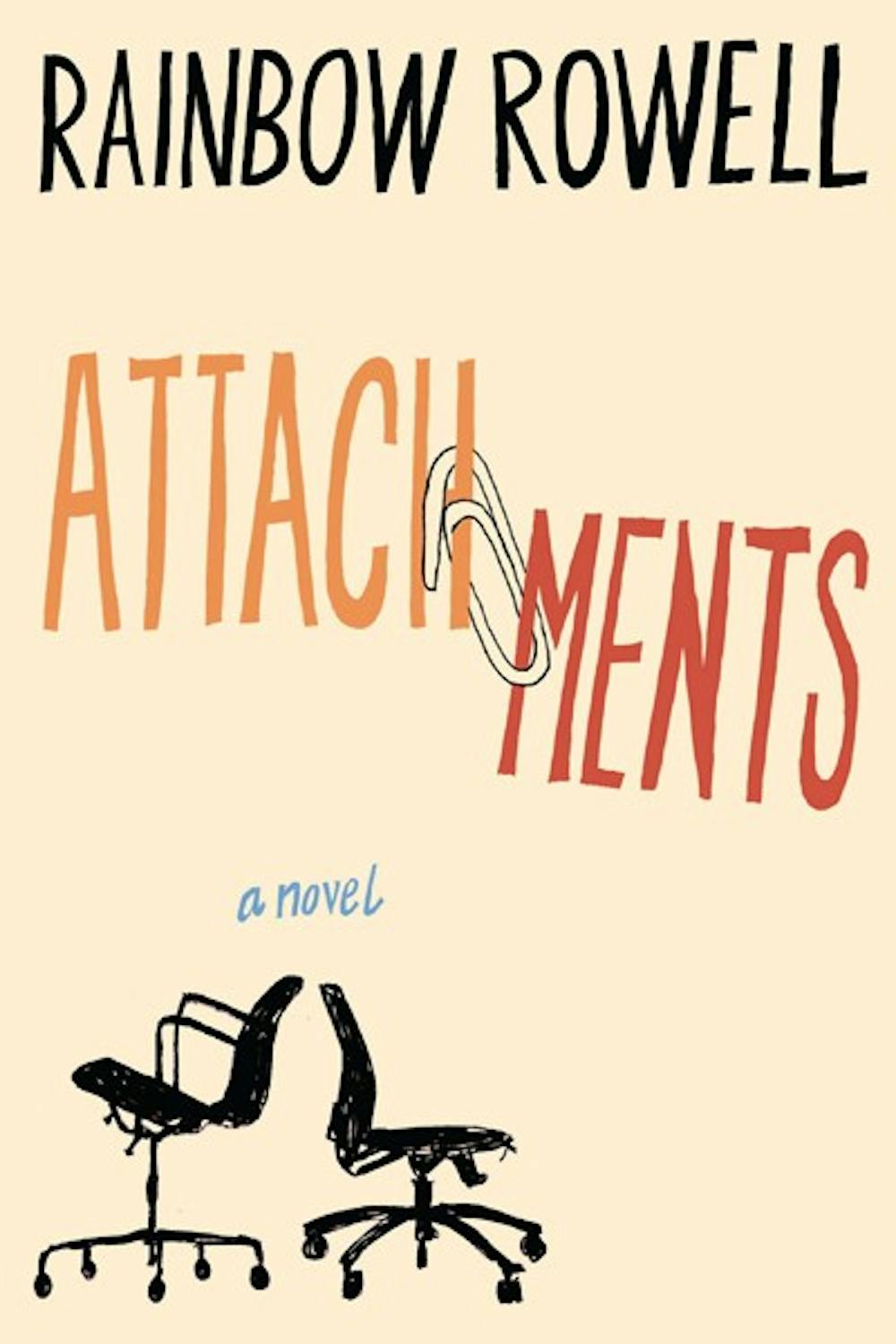Rainbow Rowell’s first novel, “Attachments,” is certainly an impressive debut in the “chick lit” world. I am not usually a fan of books that blatantly target a female audience, but “Attachments” had me laughing from start to finish.
Beth and Jennifer know the newspaper company they work for monitors their office email accounts, but this does not stop the women from sending each other entertaining and personal messages to get themselves through the workday. Their email conversations range from the snacks in the break room vending machine to their personal anxieties and fears in their close relationships.
Lincoln, a man in his late-twenties who just finished school and has moved back in with his mother, applies to be the Internet security officer at the same workplace as Jennifer and Beth. What this job really means is sifting through the emails that have been flagged as inappropriate or indecent. Lincoln is supposed to turn people in for misusing company email, but when it comes to Beth and Jennifer, he can’t bring himself to send company warnings. He can’t help but be amused – and endeared – by their stories.
By the time Lincoln realizes he is falling for Beth, he believes it is way too late for him to even introduce himself. He also finds that he has to face and overcome the demons from his past in order to accept the potential of his future.
The emails exchanged between Beth and Jennifer are witty, smart, and incredibly honest about their lives. Their insightful comments and individual stories are relatable and intelligent, and by basing their communication solely on Internet interaction, their dialogue is quick and easy to read.
The seemingly pathetic Lincoln actually turns out to be the most poignant character. The more I read and learned about him, the more tenderness I felt towards him. Rowell is able to capture the sentiment and grief Lincoln experiences, while also showing the present obstacles he faces to foster hope for himself.
Rowell slowly reveals the characters’ tumultuous histories just as it would be if the reader met and befriended a real person. There is an initial impression given of the main characters, and as the past unfolds, readers will realize how attached they are to the well being of each person.
The combination of straight dialogue and longer prose makes for an interesting twist to typical storytelling. Though this novel is targeted more towards women, I would encourage any guy with an open mind to read it, but a fair warning: some parts at the end even made me a little queasy.
Reach the reporter at mgrichar@asu.edu





